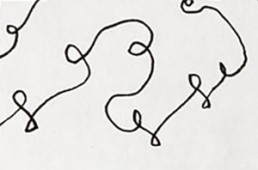Learning and conversation kit
Finding our Way in This Work
What is “the work?” What is my place in it?
The Racial Justice Pathways series gathers people around our collective yearning to dismantle racism and its structures of dominance. But the road to a better world is not a well-marked highway, and there are no clear directions. We must find our way together.
At the heart of this first kit is a set of questions and an invitation to pause and to reflect. What is “The work?” What is “My work?” The challenges can seem so vast, and we can feel so small. What are ways to think about our place, our agency and sufficiency, that can help us navigate the inward and outward rhythms of life and work toward a world of belonging?
Mixtape
Begin by listening
Audio episode
Finding our way in this work
Conversations with Maurice Stevens and Nicole Nieto of the Racial Justice Pathways program at Ohio State University, and Hanna du Plessis of Fit Associates.
These conversations were sparked by questions… What is “the work” of racial justice? What is my place in it? The challenges can seem so vast, and we can feel so small—what are ways to think about our place, our agency and sufficiency that can help us navigate the inward and outward rhythms of life and work toward a world of belonging?

Reflection Guides
Begin by listening
There’s a LOT in that mixtape. Famously, a little time spent with your thoughts and a notebook helps some of that “a lot” make its way into long-term memory. (Conversation helps too, which is what the next step is about.)
A guide for your small group
When you next gather as a group, try to time it so everyone has had a chance to listen to this kit’s mixtape and worked through the personal reflection guide. This is great input for your group to work with. It’s amazing how seeing through other’s eyes can deepen your experience of these ideas and experiences.
Here’s a pdf that suggests a simple two-step way to organize your group conversation about the mixtape and what people took from their personal reflections. It can work in thirty minutes, but if you have the time we recommend giving more time to the second step—finding themes together.